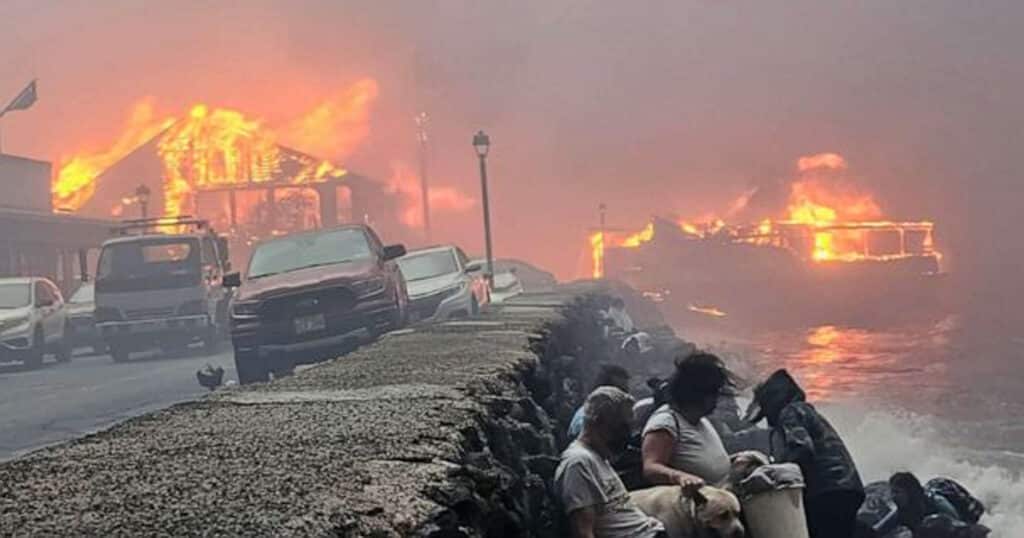
Bad Government, Not Climate to Blame for Maui Wildfire Disaster
Hawaii Gov. Josh Green and the media pointed the finger at climate change as responsible for the dozens of deaths and tremendous property loss resulting from the Maui wildfires. They’re pointing in the wrong direction.
Dry grasslands, windy conditions and one or more sparks were all it took to put Maui ablaze. As usual with natural disasters, what happened is not really predictable so no one is to blame for the event itself.
But that’s where blamelessness ends and government culpability begins.
The grasslands that the wildfire blew through did not dry overnight. The area where the wildfires occurred has been in moderate to severe drought. Drought conditions are a significant risk factor for out-of-control wildfires.
Though lightning strikes can ignite wildfires, most wildfires are touched off my some human activity, a downed power line, a negligently extinguished campfire or arson. In May 2022, Maui officials investigated arson as the cause of wildfires that had been set all over the island.
So the Maui government had actual knowledge of drought conditions and constructive knowledge that arson was a possibility. Yet no warning was issued to the public or emergency plans made for the possibility of wildfire until it was too late on August 9.
The primary responsibility of government is to keep its citizens safe. Government was tragically asleep on Maui.
But there is a lesson related to climate in all of this.
The Biden administration has taken an all-of-government approach to climate. Every federal agency has got some sort of initiative either aimed at emissions reduction or alarming the public about the alleged dangers of climate change.
Just about a year ago, Democrats rammed the Inflation Reduction Act through Congress on a party line vote. The law authorizes the spending of $369 billion on various climate initiatives ostensibly aimed at reducing emissions via wind turbines, solar panels and electric vehicles.
But the reality of spending that much money on “green” technology is that it will not make the slightest dent in global emissions. Even if you believe that emissions drive “climate change”, emissions cuts from Inflation Reduction Act spending will be exceedingly small and irrelevant. China is right now planning and building more than 300 coal plants that will be in operation way before any Inflation Reduction Act emissions cuts come to fruition.
So the federal, state and local governments will be busy and focused on spending scads of money on projects that will have no effect on weather or climate, including tragedies like the one that just befell Maui.
Worse though, is the distraction that is part-and-parcel of the all-of-government approach to climate.
Instead of recognizing that natural disasters, whether related to human activity or not, have always happened and will continue to happen, and that serious emergency planning for what’s could happen is obviously needed everywhere, all levels of government are distracted by climate and the money that can be handed out to special interests.
Maui has sued Big Oil alleging culpability for global warming. For full disclosure, I am identified in the lawsuit as helping out the defendants. No doubt Maui will tack on the wildfire tragedy in its claim for damages.
But the lawsuit is just a political sideshow. Dozens are dead in Maui. Although the government had knowledge of what could happen, no one was warned of the danger until it was too late. Maui should sue itself.
Steve Milloy is a senior legal fellow with the Energy and Environment Legal Institute.
This article was originally published by RealClearPolicy and made available via RealClearWire.



